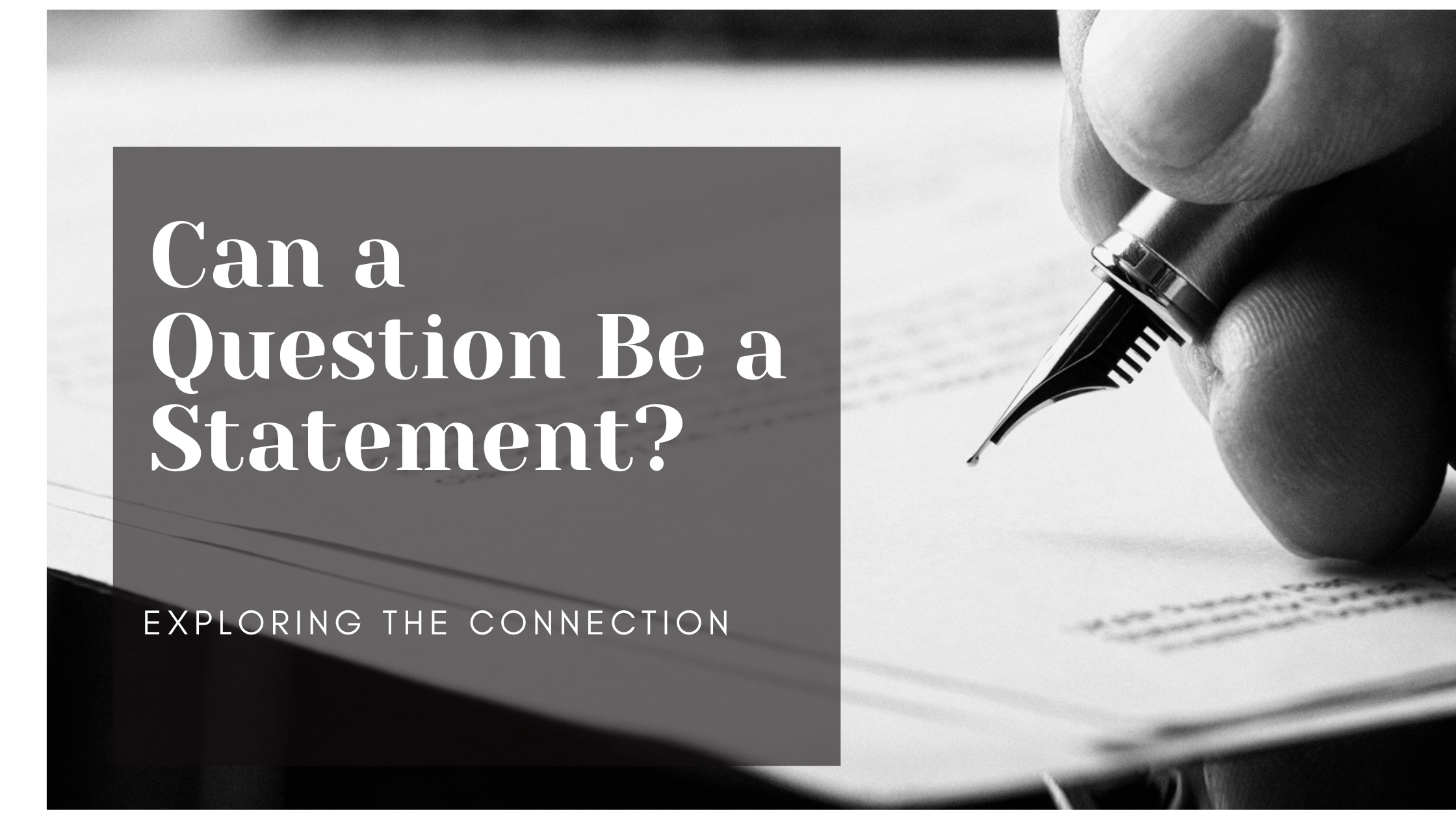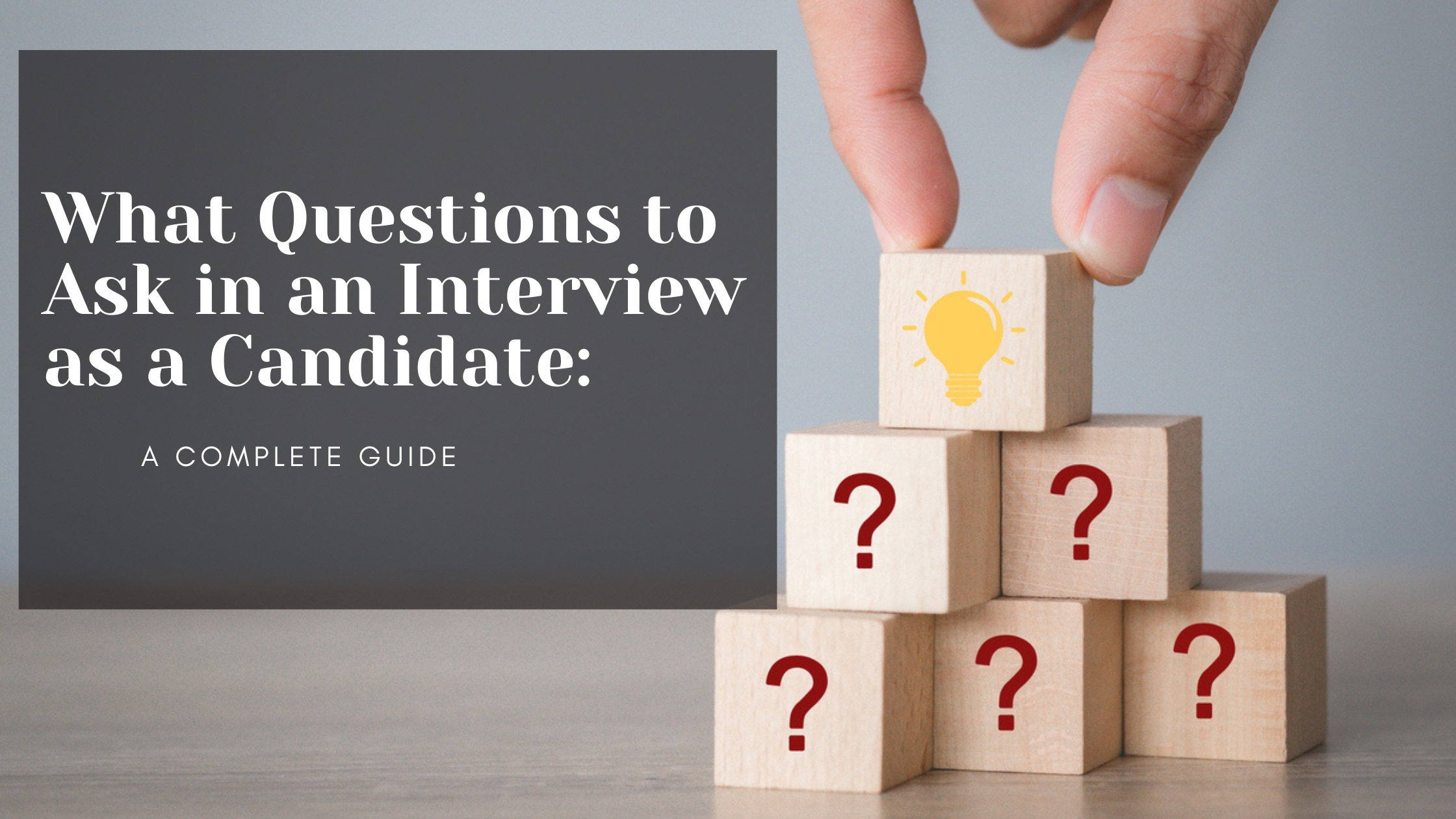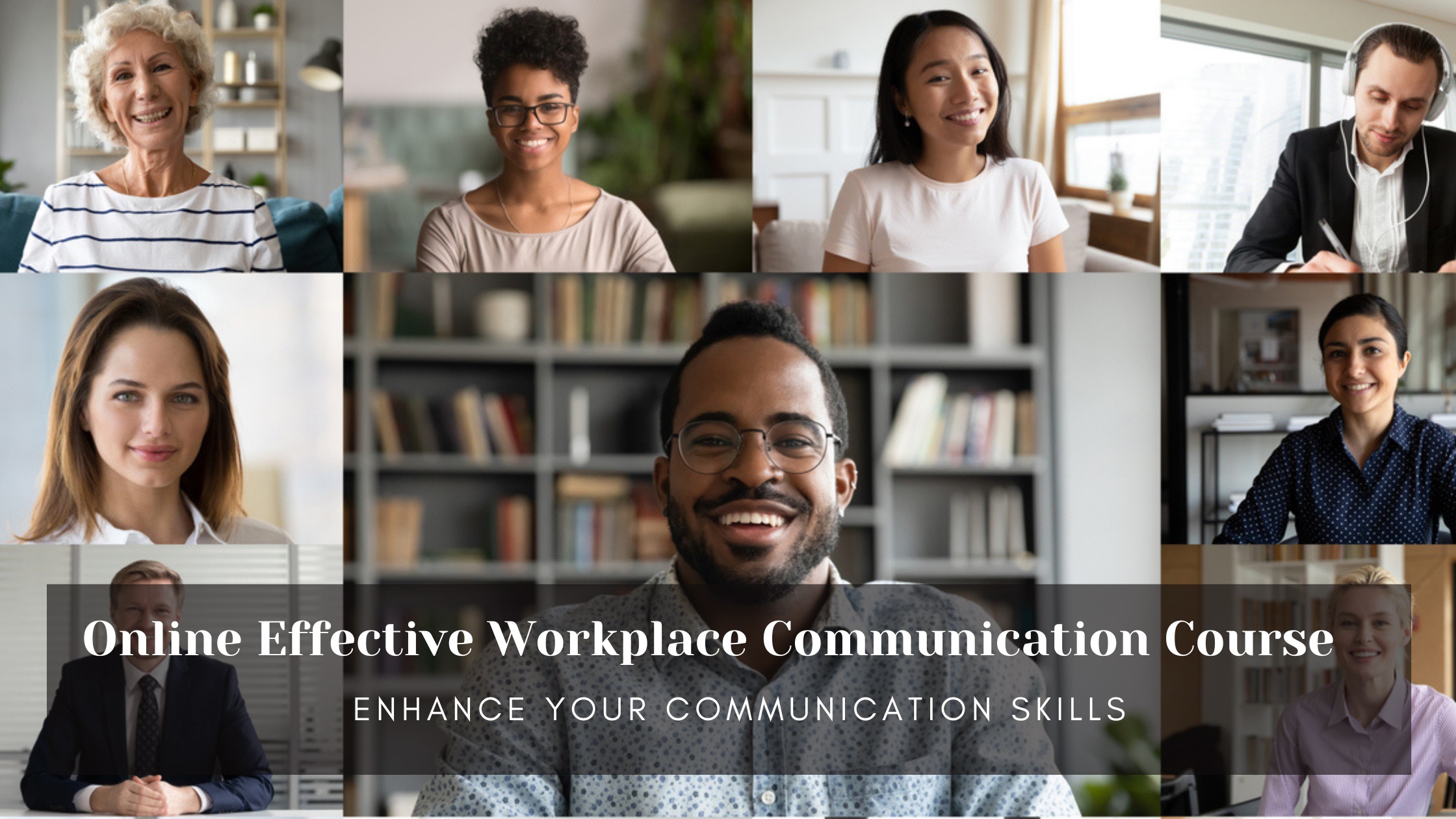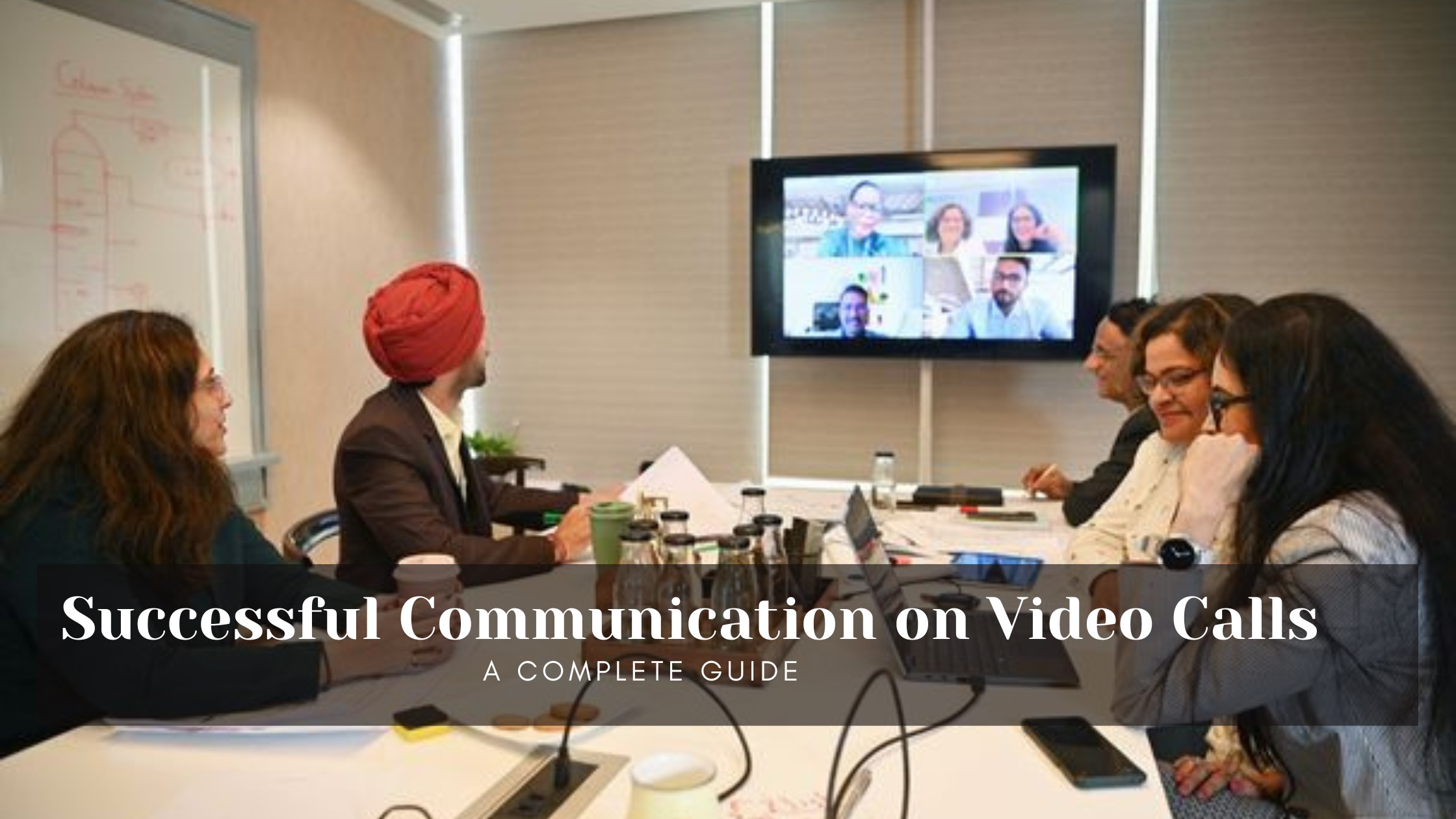

Reasons Why We Need to Listen to Our Teachers- Teachers play a significant role in shaping our lives. listening to teachers is not just about hearing their words but understanding their wisdom, guidance, and experience. Whether you’re a student in a classroom or someone receiving advice from a mentor, the act of truly listening to your teacher can make a remarkable difference in your learning and personal growth. Let’s explore six compelling reasons why we must listen to teachers and how it can benefit us in various aspects of life.
One of the primary reasons to listen to the teacher is the wealth of knowledge they possess. Teachers have spent years studying and understanding the subjects they teach. When students listen to teachers, they gain access to information and insights that are carefully curated to help them succeed.
When students listen to the teacher, they can grasp difficult concepts more effectively, improving their academic performance.
Listening to your teacher is an act of respect. It demonstrates that you value their efforts and expertise. Respecting authority figures like teachers instills discipline, which is essential for success in any field.
By practicing listening to teachers, students develop good habits that translate into respectful interactions in other areas of life.
When you actively listen to the teacher, you improve your ability to process and respond to information. This skill is crucial for effective communication in everyday life.
Improving listening to teachers leads to better communication, enabling students to express themselves clearly and confidently.
Teachers often share practical advice and life lessons beyond textbooks. By listening to your teacher, you gain insights that prepare you for challenges in the real world.
Students listening to teachers can apply these lessons in their careers and personal lives, leading to better decision-making and problem-solving skills.
When students listen to teachers, it fosters a supportive and positive atmosphere in the classroom. This mutual respect encourages teachers to be more enthusiastic and students to be more engaged.
listening to the teacher helps create a sense of community and collaboration, benefiting everyone involved.
Lastly, listening to teachers is essential for personal growth. Teachers guide students not just academically but also emotionally and socially. By paying attention to their guidance, students can develop a well-rounded personality.
When students take the time to listen to their teacher, they unlock their full potential, paving the way for a successful and fulfilling life.
Encouraging students listening to teacher involves effort from both teachers and students. Here are some strategies
By working together, teachers and students can create an environment where listening to the teacher becomes a natural and rewarding habit.
To sum up, listening to teachers is not just a classroom activity; it’s a life skill. Whether it’s understanding a math problem, learning a new language, or gaining wisdom about life, listening to the teacher opens the door to countless opportunities.
By embracing the habit of listening to your teacher, you’re investing in your future success and personal development. So, the next time you’re in a classroom, remember to pay attention and value the wisdom your teacher is sharing. It could change your life! For more resources, tips, and tools to enhance learning and personal growth, explore Epee-Education, your online platform for educational development and guidance.
Ans: Listening to teachers helps us gain knowledge, understand concepts better, and build respect for learning and discipline.
Ans: Paying attention allows students to grasp lessons effectively, ask relevant questions, and perform better in exams.
Ans: Respecting teachers fosters a positive learning environment and helps develop trust and communication between students and educators.
Ans: Teachers often share life lessons and values that contribute to developing good character and critical thinking skills.
Ans: Active listening ensures students understand instructions clearly, reducing mistakes and enhancing productivity.
Ans: Engaging with teachers encourages confidence in expressing thoughts and ideas, improving interpersonal skills.
Ans: Yes, understanding the lessons and connecting with the teacher’s approach can make the learning process more engaging.
Ans: Teachers guide students in choosing the right paths, sharing career advice, and inspiring lifelong learning.
Ans: Disregarding teachers can lead to poor academic performance, misunderstandings, and missed opportunities for growth.
Ans: Students can focus on minimizing distractions, taking notes, asking questions, and maintaining eye contact with their teachers.
 When we hear a question, we naturally expect it to be seeking an answer. But have you ever wondered if a question can also serve as a statement? This concept may sound unusual, but it’s an interesting way to look at how language works. In this blog, we will explore how a question can sometimes act as a statement, why this happens, and the impact it has on communication. Let’s dive into this thought-provoking topic!
When we hear a question, we naturally expect it to be seeking an answer. But have you ever wondered if a question can also serve as a statement? This concept may sound unusual, but it’s an interesting way to look at how language works. In this blog, we will explore how a question can sometimes act as a statement, why this happens, and the impact it has on communication. Let’s dive into this thought-provoking topic!
A question is a sentence or expression used to ask for information, clarification, or confirmation. Questions often end with a question mark (?) and are commonly categorized into the following types-
Questions are essential for conversations, learning, and problem-solving. But sometimes, they are used for more than just seeking answers.
A statement is a sentence that declares or conveys information, facts, or opinions. For example-
Statements are usually straightforward and do not require a response. However, a question can sometimes function as a statement, depending on its purpose and tone.
A question becomes a statement when it is used to express an opinion, make a point, or imply something rather than genuinely seeking an answer. This happens often in casual conversations and rhetorical language. Let’s look at some examples-
In these cases, the speaker is not asking for an answer. They are simply emphasizing their opinion or making a statement.
Here, the speaker is expressing skepticism rather than genuinely asking.
This question functions more as a statement encouraging people to consider the benefits of recycling.
Using a question as a statement can serve several purposes in communication-
Here are more examples to help you understand-
Tone and context are crucial in determining whether a question is meant as a statement. For example-
Using questions as statements can-
To avoid miscommunication, consider the tone, context, and relationship with the person you’re speaking to.
So, can a question be a statement? Absolutely! Understanding this concept can help us communicate more effectively and creatively. Whether you’re emphasizing a point, expressing emotion, or engaging your audience, using questions as statements is a powerful tool. Just remember to be clear and considerate to avoid misunderstandings. What do you think? Have you ever used a question as a statement in your conversations? Let us know your thoughts in the comments below!
Q1. Can a rhetorical question be considered a statement?
Yes, a rhetorical question is often used to make a statement rather than seek an answer. For example, “Who doesn’t love ice cream?” implies that everyone loves ice cream.
Q2. Why do people use questions as statements?
People use questions as statements to emphasize a point, express emotions, engage listeners, or add a touch of politeness to their communication.
Q3. What are examples of questions that act as statements?
Examples include-
Q4. Can tone change a question into a statement?
Yes, the tone plays a significant role. For instance, “Really?” can be a genuine question or a sarcastic statement, depending on how it’s said.
Q5. How can I avoid confusion when using questions as statements?
To avoid confusion, ensure your tone and context are clear. If needed, follow up with an explanation to clarify your intent.
Q6. Are questions as statements common in everyday speech?
Ans: Yes, they are quite common, especially in casual conversations and rhetorical language. They help add emotion, engage listeners, and make points more effectively.

When you go for a job interview, it’s not just the employer’s chance to evaluate you—it’s also your chance to evaluate them. Asking the right questions shows your interest in the position, helps you learn more about the company, and demonstrates that you’ve done your homework. This blog will guide you on what questions to ask in an interview as a candidate to leave a lasting impression and make the best career decision.
Asking thoughtful questions during an interview shows-
Now, let’s dive into what questions to ask in an interview as a candidate to make a positive impact.
Understanding the specifics of the position is crucial. Consider asking-
The team dynamic is essential to your work experience. Ask-
Knowing the company’s approach to development can shape your career. Ask-
Work culture can greatly impact your happiness in a role. Ask-
Knowing where the company is headed can guide your decision. Ask-
Receiving feedback is essential for growth. Ask-
Wrap up the interview by clarifying details. Ask-
Knowing what questions to ask in an interview as a candidate is just as important as answering the interviewer’s questions. It’s your chance to demonstrate interest, gather essential details, and ensure the role is right for you. The right questions can set you apart from other candidates and help you feel confident about your decision. For more career tips and advice, visit Epee-Education.

Preparing for a job interview can be both exciting and nerve-wracking. The night before your interview is crucial for setting yourself up for success. It’s the time to finalize your preparations, relax, and boost your confidence. In this blog, we’ll guide you through what to do the night before an interview to ensure you feel confident and ready to impress.
The first step in preparing the night before an interview is to thoroughly review the job description and research the company. This will help you align your responses with what the employer is looking for.
Understand Key Responsibilities– Highlight the main duties and required skills in the job description. Think about how your experience matches these points.
Research the Company– Visit the company’s website, read their “About Us” page, and check recent news about the organization. Understanding their mission and values will give you an edge during the interview.
Familiarize Yourself with the Role– Imagine how you’d fit into the position and prepare examples from your past work that demonstrate your qualifications.
Choosing your outfit the night before eliminates stress on the day of the interview.
Dress Professionally– Select an outfit appropriate for the company’s culture. Business formal or business casual is usually a safe choice.
Ensure It’s Clean and Neat– Iron your clothes and ensure everything is stain-free and wrinkle-free.
Consider Comfort– Make sure your outfit fits well and is comfortable, so you can focus on the interview, not your clothes.
Having your documents ready the night before ensures you don’t scramble at the last minute.
Print Multiple Copies of Your Resume– Even if you’ve sent it digitally, it’s a good idea to have hard copies for yourself and the interviewer.
Prepare Additional Documents– These may include a cover letter, portfolio, references, or certificates, depending on the role.
Pack Them Neatly– Use a folder or portfolio to keep everything organized and professional.
The night before, take time to rehearse answers to typical interview questions.
Tell Me About Yourself– Practice a concise, engaging response that highlights your skills and experience.
Why Do You Want This Job?– Be ready to explain what excites you about the role and how it aligns with your goals.
Behavioral Questions– Use the STAR method (Situation, Task, Action, Result) to structure answers to questions about past experiences.
Have Questions Ready– Prepare thoughtful questions to ask the interviewer, such as about the team, company culture, or future goals.
Planning your journey the night before reduces the risk of being late.
Check the Location– Use a map app to confirm the address and estimate travel time.
Consider Traffic or Delays– Factor in potential delays and plan to arrive 15-20 minutes early.
Decide on Transportation– Whether you’re driving, using public transit, or taking a ride-share, ensure your method is reliable.
Your elevator pitch is a short introduction that summarizes who you are and what you bring to the table. Practice delivering it smoothly and confidently.
Keep It Short– Aim for 30-60 seconds.
Focus on Strengths– Highlight your key skills and accomplishments.
Tailor It to the Role– Connect your background to the position you’re applying for.
A well-rested mind is essential for performing your best during the interview.
Set a Bedtime– Aim for 7-8 hours of sleep to feel refreshed.
Avoid Stimulants– Stay away from caffeine or heavy meals late in the evening.
Relax Your Mind– Practice deep breathing or meditation to calm pre-interview nerves.
Interviews can be stressful, so practicing relaxation techniques can help.
Visualization– Imagine yourself walking into the interview confident and prepared.
Deep Breathing– Take slow, deep breaths to calm your mind and body.
Positive Affirmations– Remind yourself of your strengths and that you are capable of success.
Avoid confusion by confirming the interview details.
Check the Time and Date– Ensure you know exactly when and where the interview is happening.
Look for Additional Instructions– Some interviews may require specific steps, such as joining a video call or meeting at a particular entrance.
If your interview is virtual, take the time to test your setup.
Check Your Internet Connection– Ensure it’s stable.
Test Your Camera and Microphone– Make sure they are working properly and that the lighting is good.
Familiarize Yourself with the Platform– If it’s on Zoom, Microsoft Teams, or another platform, ensure you know how to use it.
The night before an interview isn’t the time to cram or overthink.
Focus on Key Points– Trust that your preparation so far is enough.
Relax– Spend some time doing something you enjoy to unwind.
Stay Positive– Remind yourself that the interview is an opportunity, not a test.
While you can’t predict every question, being mentally prepared for surprises helps.
Think on Your Feet– Practice responding calmly to unexpected questions.
Use a Structured Approach– When unsure, pause, think, and answer with clarity.
Before going to bed, spend a few minutes visualizing a successful interview. Imagine yourself confidently answering questions, connecting with the interviewer, and leaving with a smile. This positive mindset can make a big difference in how you perform.
The night before an interview is your time to prepare, relax, and set the stage for success. By following these steps—reviewing the job description, practicing your answers, preparing your outfit, and getting a good night’s sleep—you’ll walk into the interview confident and ready to shine. Remember, preparation is the key to reducing stress and showing the best version of yourself. Good luck! You’ve got this! For more tips and guidance, visit Epee-Education.
 As a small business owner, you are constantly juggling multiple roles—entrepreneur, marketer, manager, and strategist. The right knowledge can help you navigate the challenges and maximize your opportunities. Books for small business owners are a valuable tool to gain insights, sharpen your skills, and boost your business growth. Whether you’re just starting out or looking to refine your strategies, there are books that can guide you through each stage of your entrepreneurial journey. In this blog, we’ll highlight some of the best books for small business owners, packed with actionable advice, inspiring stories, and effective strategies.
As a small business owner, you are constantly juggling multiple roles—entrepreneur, marketer, manager, and strategist. The right knowledge can help you navigate the challenges and maximize your opportunities. Books for small business owners are a valuable tool to gain insights, sharpen your skills, and boost your business growth. Whether you’re just starting out or looking to refine your strategies, there are books that can guide you through each stage of your entrepreneurial journey. In this blog, we’ll highlight some of the best books for small business owners, packed with actionable advice, inspiring stories, and effective strategies.

Effective communication is the key to success in any workplace. Whether you’re dealing with colleagues, clients, or managers, how you convey your thoughts and ideas can make a huge difference. To help you improve your communication skills and achieve better results at work, Epee-Education offers an Online Effective Workplace Communication Course designed to make learning easy and accessible. This blog will explore the importance of workplace communication, how the course helps you enhance your skills, and why it is beneficial for you and your organization.
In today’s fast-paced world, the ability to communicate effectively is more important than ever. Effective workplace communication helps create a positive work environment, reduces misunderstandings, and promotes teamwork. Whether you’re working in a large corporation or a small team, strong communication skills allow you to perform better and connect with others more effectively.
Key Benefits of Effective Communication-
By enrolling in the Online Effective Workplace Communication Course by Epee-Education, you’ll gain the skills needed to improve all of these aspects in your workplace.
The Online Effective Workplace Communication Course is an in-depth, self-paced learning program designed to help professionals develop key communication skills required for success in the workplace. The course provides both theoretical knowledge and practical tools to help you communicate more clearly and effectively with coworkers, clients, and management.
| Course Name | Online Effective Workplace Communication Course |
|---|---|
| Offered By | Epee-Education |
| Target Audience | Professionals, Managers, Team Leaders, Employees |
| Course Duration | Flexible, Self-paced |
| Learning Format | Online, Interactive Lessons, Case Studies, Quizzes |
| Key Topics Covered | Verbal & Non-verbal Communication, Active Listening, Team Communication, Conflict Resolution |
| Certification | Yes (Upon Completion) |
| Prerequisites | None |
The Online Effective Workplace Communication Course covers a wide range of essential communication skills that will help you enhance your professional interactions. Whether you are just starting in your career or are an experienced manager, the course offers valuable lessons for everyone.
Verbal communication is one of the most powerful ways to express your thoughts and ideas in the workplace. This section of the course focuses on improving your speaking skills and teaching you how to communicate with clarity and confidence. Verbal communication includes-
Non-verbal communication plays a huge role in how we are perceived in the workplace. The course helps you understand how body language, facial expressions, and gestures influence the way your message is received. By mastering non-verbal communication, you’ll learn how to convey your messages more effectively and avoid misunderstandings.
Key Elements of Non-Verbal Communication-
Effective communication is not just about speaking—it’s also about listening. Active listening involves focusing on the speaker, understanding their message, and responding appropriately. The course teaches you how to be a better listener by focusing on-
Communication is critical when working in teams, and the Online Effective Workplace Communication Course focuses on developing the skills necessary for effective team communication. This module will teach you how to communicate within a group, share ideas, and collaborate effectively.
Key Aspects of Team Communication-
Conflicts are inevitable in the workplace, but how they are handled can make a huge difference. The course includes a module on conflict resolution and teaches you how to manage and resolve conflicts in a professional and respectful manner.
Key Techniques for Conflict Resolution-
There are many communication courses available online, but the Online Effective Workplace Communication Course by Epee-Education stands out for several reasons-
The course is online and self-paced, allowing you to learn at your own pace and on your own schedule. Whether you’re working full-time or have other commitments, you can fit the lessons into your busy life.
The course is designed to provide practical, actionable skills that you can start using immediately. Whether you’re presenting ideas in a meeting, giving feedback to colleagues, or handling a challenging conversation, the skills you gain from this course will help you communicate more effectively in any situation.
The Online Effective Workplace Communication Course is led by experts in the field of workplace communication. With years of experience, the instructors provide valuable insights and guidance that you can apply directly to your professional life.
The course offers comprehensive materials, including interactive lessons, case studies, and quizzes, that make learning more engaging and effective. You’ll have all the resources you need to succeed.
Upon completion of the course, you will receive a certificate that demonstrates your commitment to professional development and improving your communication skills. This certificate can enhance your resume and help you stand out in the job market.
The Online Effective Workplace Communication Course is perfect for professionals at all levels who want to improve their communication skills. Whether you’re just starting your career or are an experienced manager, the course offers valuable lessons for everyone.
Ideal Candidates-
Good communication is essential for professional success, and the Online Effective Workplace Communication Course by Epee-Education is the perfect way to enhance your skills. Whether you’re looking to improve your verbal communication, non-verbal communication, or team communication, this course provides the knowledge and tools you need to succeed. With expert instructors, flexible learning options, and practical application, this course is an excellent investment in your professional development. Enroll today and take the first step toward becoming a more effective communicator in the workplace!

In today’s fast-paced world, personal and professional development are essential for achieving long-term success. One of the most effective ways to enhance your skills, boost your productivity, and stay ahead in your career is by reading books that focus on professional development. In this blog, we will explore a curated list of professional development books that have stood the test of time, helping individuals at all stages of their careers.
Professional development is not just about gaining new skills but also about continuously improving yourself to meet the demands of the ever-changing workplace. Books for professional development offer valuable insights into areas like leadership, communication, time management, and personal growth. By reading these books, you can stay inspired, learn from others’ experiences, and gain practical knowledge that will help you reach your full potential.
Here are some of the best professional development books that have made a significant impact over the years-
| Book Title | Author | Main Takeaway |
|---|---|---|
| How to Win Friends and Influence People | Dale Carnegie | Learn the power of building strong relationships and influencing others positively. |
| The 7 Habits of Highly Effective People | Stephen R. Covey | Master time management and productivity with these seven habits. |
| Atomic Habits- An Easy & Proven Way to Build Good Habits & Break Bad Ones | James Clear | Learn how small habits can lead to remarkable results over time. |
| Grit- The Power of Passion and Perseverance | Angela Duckworth | Discover the importance of persistence and passion for achieving long-term goals. |
| Leaders Eat Last- Why Some Teams Pull Together and Others Don’t | Simon Sinek | Understand the role of leadership and team building in creating a successful workplace culture. |
| Drive- The Surprising Truth About What Motivates Us | Daniel H. Pink | Uncover the science behind motivation and how to stay engaged in your work. |
| Dare to Lead- Brave Work. Tough Conversations. Whole Hearts. | Brené Brown | Embrace vulnerability and courage to become a more effective leader. |
| The Lean Startup- How Today’s Entrepreneurs Use Continuous Innovation to Create Radically Successful Businesses | Eric Ries | Learn how to build a startup through innovation, testing, and iteration. |
This classic book, first published in 1936, is one of the most influential professional development books of all time. Dale Carnegie’s timeless advice on effective communication and building strong, lasting relationships is as relevant today as ever. Whether you’re a manager, entrepreneur, or employee, mastering the principles in this book will help you connect with others, inspire trust, and get ahead in your career.
Stephen Covey’s book, first published in 1989, has been a must-read for professionals seeking personal and professional growth. The 7 habits outlined in the book offer a structured approach to improving time management, decision-making, and productivity. Covey focuses on principles of integrity, fairness, and human dignity—key traits that are essential for building a successful career.
In this modern classic, James Clear explores how small changes in behavior can lead to remarkable results. Atomic Habits focuses on building good habits while breaking bad ones by emphasizing habit stacking, environment design, and the power of consistency. This book is essential for anyone looking to improve their personal productivity and achieve lasting success.
Angela Duckworth’s research reveals that talent is not enough for success—grit (passion and perseverance) is key. This book is an excellent choice for anyone looking to develop mental toughness and stay committed to their goals, no matter the challenges. Grit is an essential trait for professional development because it helps you push through setbacks and keep going even when success seems distant.
In this book, Simon Sinek examines the role of leadership in building trust and cooperation within teams. Leaders Eat Last is perfect for managers and aspiring leaders who want to create a workplace culture based on trust, loyalty, and mutual respect. Sinek draws on real-life examples from the military and business to demonstrate how great leaders can inspire greatness in others.
Daniel Pink’s Drive focuses on the psychology of motivation. This book challenges traditional views on what drives people to perform at their best, emphasizing the importance of autonomy, mastery, and purpose over external rewards. For professionals looking to improve work motivation and employee engagement, this book offers a new perspective on the factors that lead to success.
Brené Brown’s Dare to Lead is a powerful guide for those looking to lead with vulnerability and courage. Brown, a research professor at the University of Houston, explores how leaders can create a culture of openness, creativity, and innovation. This book is ideal for professionals who want to embrace their full potential and create meaningful change in their organizations.
If you’re an entrepreneur or someone looking to bring innovation to your organization, The Lean Startup by Eric Ries offers invaluable lessons. It teaches how to apply the principles of continuous innovation and rapid experimentation to create successful business models. This book is a must-read for professionals interested in entrepreneurial development and disruptive technologies.
Simply reading these professional development books is not enough—you must actively apply the lessons learned. Here are some tips for getting the most out of your reading-
Reading professional development books is one of the best investments you can make in your career. These books offer timeless wisdom, practical strategies, and inspiring stories that can help you navigate your professional journey and unlock your full potential. Whether you’re just starting your career or you’re looking to take it to the next level, there is always something new to learn. Embrace the power of books and continue growing both personally and professionally.
By incorporating these books into your daily routine, you’ll be well on your way to becoming the best version of yourself—ready to take on the challenges and opportunities that come your way.
Best Books for Small Business Owners- Key Resources for Success
The 10 Best Financial Books for Beginners to Improve Your Money Management
Professional Development Books for All Time-
Popular Personality Development Books to Change Your Life

Personality development is something everyone strives for. Whether it’s about improving your skills, enhancing confidence, or managing emotions, books are an excellent resource for boosting personal growth. If you’re looking for the best personality development books that can truly transform your life, here’s a list of popular ones that stand out. These books on personality development provide valuable insights, tips, and strategies that anyone can apply. Let’s dive into some of the most recommended books that have changed lives.
Dale Carnegie’s timeless classic How to Win Friends and Influence People is a must-read for anyone interested in improving their social and professional relationships. This book is widely regarded as one of the best books for personality development. It teaches the art of influencing others, building lasting friendships, and mastering communication skills.
Why read it?
It’s a great book for improving interpersonal relationships and communication skills. Carnegie’s principles are practical and have been widely adopted by successful individuals worldwide.
Stephen Covey’s The 7 Habits of Highly Effective People is another powerful personality development book that emphasizes the importance of personal responsibility, discipline, and positive thinking. Covey’s 7 habits provide a clear blueprint for improving one’s personal and professional life.
Why read it?
This book focuses on character development, which is essential for long-term success. It’s not just about achieving goals, but about becoming a better person and developing a growth mindset.
In Atomic Habits, James Clear discusses how tiny changes in your habits can lead to significant improvements in your life. This book is perfect for people who struggle with consistency and want to create lasting habits for success.
Why read it?
It’s an excellent guide for anyone wanting to improve their habits, break bad ones, and achieve long-term success. Atomic Habits is highly recommended for those looking to develop strong personal habits.
Think and Grow Rich by Napoleon Hill is a classic self-help book that focuses on the principles of success and personal achievement. This book provides deep insights into the mindset required for wealth, prosperity, and achieving your personal goals.
Why read it?
It’s a guide to success that teaches how to think like a successful person, helping you build the right mindset for achieving your dreams.
If you need a boost of confidence and empowerment, You Are a Badass by Jen Sincero is a great choice. This book on personality development is perfect for those who want to boost their self-esteem and take charge of their life.
Why read it?
This book is fun, engaging, and filled with motivational insights. It’s an excellent guide to help you break free from self-doubt and unlock your full potential.
Eckhart Tolle’s The Power of Now emphasizes the importance of living in the present moment. It’s a spiritual yet practical guide for understanding the mind and emotions and letting go of negative thought patterns that hinder personal development.
Why read it?
This book helps you develop mental clarity and mindfulness, which are essential for managing stress and improving emotional intelligence.
Daring Greatly by Brené Brown explores the power of vulnerability and courage. It teaches how embracing vulnerability can lead to stronger relationships, personal growth, and greater resilience.
Why read it?
This book helps you understand the importance of vulnerability in building authentic connections and overcoming fear.
In Mindset: The New Psychology of Success, Carol Dweck discusses the concept of a “growth mindset” versus a “fixed mindset.” This book is a great resource for anyone who wants to learn how to develop a mindset that fosters continuous learning and improvement.
Why read it?
It’s an eye-opening book that helps you understand how your mindset influences your success. With a growth mindset, anything is possible.
The Magic of Thinking Big is a motivational book that teaches you how to think beyond your limitations and achieve success. This book encourages readers to set high goals and take massive action toward their dreams.
Why read it?
This book helps you shift your thinking from small, limiting beliefs to bold, big thinking. It’s perfect for anyone looking to achieve great things in life.
These popular personality development books can guide you in your journey to personal growth and success. Whether you’re looking to improve your habits, build better relationships, or achieve your goals, there’s a book on this list that can help. Choose the one that resonates with you the most, and start your path to transformation today.
Best Books for Small Business Owners: Key Resources for Success
The 10 Best Financial Books for Beginners to Improve Your Money Management
Professional Development Books for All Time:
Popular Personality Development Books to Change Your Life

Video calls have become an essential part of our daily lives, helping us stay connected for work, education, and personal interactions. But to ensure smooth and effective communication, there are key practices you must follow. In this blog, we’ll explore practical tips and tricks for successful communication on video calls, making it easy for everyone to understand and apply.
Successful communication on video calls refers to the ability to convey and receive information effectively during virtual interactions. It involves-
Whether for professional meetings, online courses like the Successful Communication on Video Calls program, or personal connections, clear communication is the key to success.
Benefits of Clear Communication
| Benefit | Why It’s Important |
|---|---|
| Increases Productivity | Ensures tasks and goals are understood |
| Builds Relationships | Helps establish trust and rapport |
| Reduces Misunderstandings | Prevents errors and confusion |
| Saves Time | Avoids repeated discussions or follow-ups |
Clear communication on video calls can make meetings efficient and meaningful, ensuring everyone is on the same page.
| Challenge | Impact |
|---|---|
| Poor Internet Connection | Causes delays and disruptions |
| Background Noise | Makes it difficult to hear participants |
| Lack of Engagement | Reduces focus and collaboration |
| Technical Issues | Hinders productivity and flow |
Overcoming these challenges is essential for successful communication on video calls.
| Tool | Key Features | Best For |
|---|---|---|
| Zoom | Breakout rooms, screen sharing | Team meetings and webinars |
| Google Meet | Simple interface, easy scheduling | Quick and casual video calls |
| Microsoft Teams | File sharing, chat integration | Corporate collaboration |
| Skype | Free video calls for personal use | Family and friends connections |
| Device | Why It’s Useful |
|---|---|
| High-Quality Webcam | Provides clear video for better communication |
| Noise-Canceling Headset | Reduces background noise for clearer audio |
| Lighting Setup | Ensures you’re visible in any environment |
A- Use a wired connection or position yourself closer to the Wi-Fi router for a stronger signal.
A- Use interactive tools like polls or chat features, and encourage participation by asking open-ended questions.
A- Use virtual backgrounds or position yourself in front of a plain wall for a clean look.
A- Speak slowly, use simple language, and check in frequently to confirm understanding.
Mastering successful communication on video calls doesn’t have to be difficult. By preparing your environment, using the right tools, and actively engaging with participants, you can ensure your calls are productive and enjoyable.
Whether you’re attending professional meetings or learning through courses like the Successful Communication on Video Calls program, these tips will help you excel.
Start implementing these practices today to elevate your virtual communication skills!

College Admissions Trends Today- The college admissions landscape is constantly evolving, making it essential for students to stay updated on the latest trends. From test-optional policies to an emphasis on holistic admissions, understanding college admissions trends today can make a big difference in how you approach your applications. In this blog, we’ll cover the key trends shaping college admissions today and provide useful tips for navigating the process.
Whether you’re using the Common App or applying through other platforms, knowing what admissions officers are looking for is crucial. This blog will guide you through the college admissions trends that can help you create a stronger, more competitive application. We’ll also touch on how important factors like student debt and financial aid play into the process.
College admissions are no longer just about grades and test scores. With increasing competition and changing policies, it’s important to understand the college admissions trends today to help you stand out in the application process. Factors like test-optional policies, holistic reviews, and the importance of extracurricular activities all play a huge role in how colleges assess applicants. Each year, universities are adjusting their criteria to be more inclusive and better reflect the diverse backgrounds and talents of their applicants. With this in mind, students need to focus on a comprehensive application strategy, not just academic performance.
One of the most significant changes in college admissions is the widespread adoption of test-optional policies. Many universities have moved away from requiring standardized tests like the SAT and ACT. The COVID-19 pandemic accelerated this trend, but now, many colleges continue to maintain test-optional admissions policies.
If your test scores are not your strongest feature, a test-optional policy could benefit you. With these policies, you can choose not to submit your SAT or ACT scores if you feel they don’t reflect your academic potential. However, if you believe your scores could enhance your application, you can still choose to submit them.
It’s important to research each college’s admissions requirements. While some schools are test-optional, others may still require test scores or use them as part of the decision-making process. Understanding each school’s policy will help you decide whether or not to submit your scores.
In addition to test scores, many colleges have adopted a holistic admissions approach. This means that colleges now look at the whole person, not just their academic record. A holistic review considers various factors such as your GPA, extracurricular activities, personal essays, letters of recommendation, and even your background and experiences.
The focus on holistic admissions means that colleges are interested in who you are as a person. It’s no longer enough to have excellent grades; admissions officers want to see what makes you unique. Strong personal essays, leadership roles, community involvement, and even overcoming personal challenges can help boost your application.
If you’re applying through the Common App, you’ll have the chance to showcase these aspects of your personality and achievements. Make sure to use your personal statement to share your story and explain why you’re a good fit for the school you’re applying to.
The Common App has become one of the most widely used platforms for applying to colleges. It allows students to apply to multiple colleges with one application, which saves time and effort. This platform is widely accepted by over 900 colleges and universities.
The Common App includes basic information such as your academic background, extracurricular activities, and personal details. It also allows you to submit your personal statement and other required documents, like transcripts and letters of recommendation. The application streamlines the process, but it also requires attention to detail. You must ensure that all sections are filled out accurately and thoughtfully.
To learn more about using the Common App and how it can help streamline your application process, check out this resource: College Admissions: The Common App.
With the rising cost of college tuition, many students are concerned about student debt and how to finance their education. Understanding how student debt works and the financial aid options available to you is crucial when navigating college admissions.
Before applying, it’s important to research each school’s financial aid policies. Many schools offer need-based financial aid, which is determined by your family’s financial situation. Additionally, some schools offer merit-based scholarships for students with strong academic records or extracurricular achievements.
Be sure to complete the Free Application for Federal Student Aid (FAFSA), which is required by most colleges for financial aid consideration. This form helps determine your eligibility for federal grants, loans, and work-study programs.
Additionally, it’s helpful to understand the long-term impact of student debt on your financial future. You can learn more about managing student debt and the hidden dangers associated with it in this course: Student Debt: The Hidden Dangers.
In today’s competitive admissions landscape, extracurricular activities are becoming increasingly important. Colleges want to see students who are well-rounded and engaged in their communities. Participating in activities like sports, volunteer work, music, or student government can help strengthen your application.
Strong involvement in extracurricular activities can demonstrate leadership, commitment, and a passion for something outside the classroom. Admissions officers want to know what you do in your free time and how you contribute to your community. If you’ve held leadership positions or contributed to a meaningful cause, be sure to highlight those experiences in your application.
As with many other industries, technology is playing an increasing role in college admissions. Many schools now use digital portfolios, online interviews, and even artificial intelligence to help streamline the admissions process. These tools allow colleges to assess applicants more efficiently and comprehensively.
For students, this means that it’s more important than ever to make sure your online presence is professional and appropriate. Some colleges may even review your social media profiles as part of their admissions process. Be mindful of what you post online, as it can impact how colleges perceive you.
Additionally, the growing use of technology in admissions allows students to complete parts of their applications remotely, including virtual campus tours and online interviews. This can make the process more accessible and convenient for students across the globe.
As college admissions continue to evolve, staying informed about college admissions trends today can help you put your best foot forward. Here are a few key takeaways:
By understanding these trends and adapting your approach, you can increase your chances of success in the competitive world of college admissions.
For more detailed guidance on college admissions trends today, check out College Admissions Trends Today.